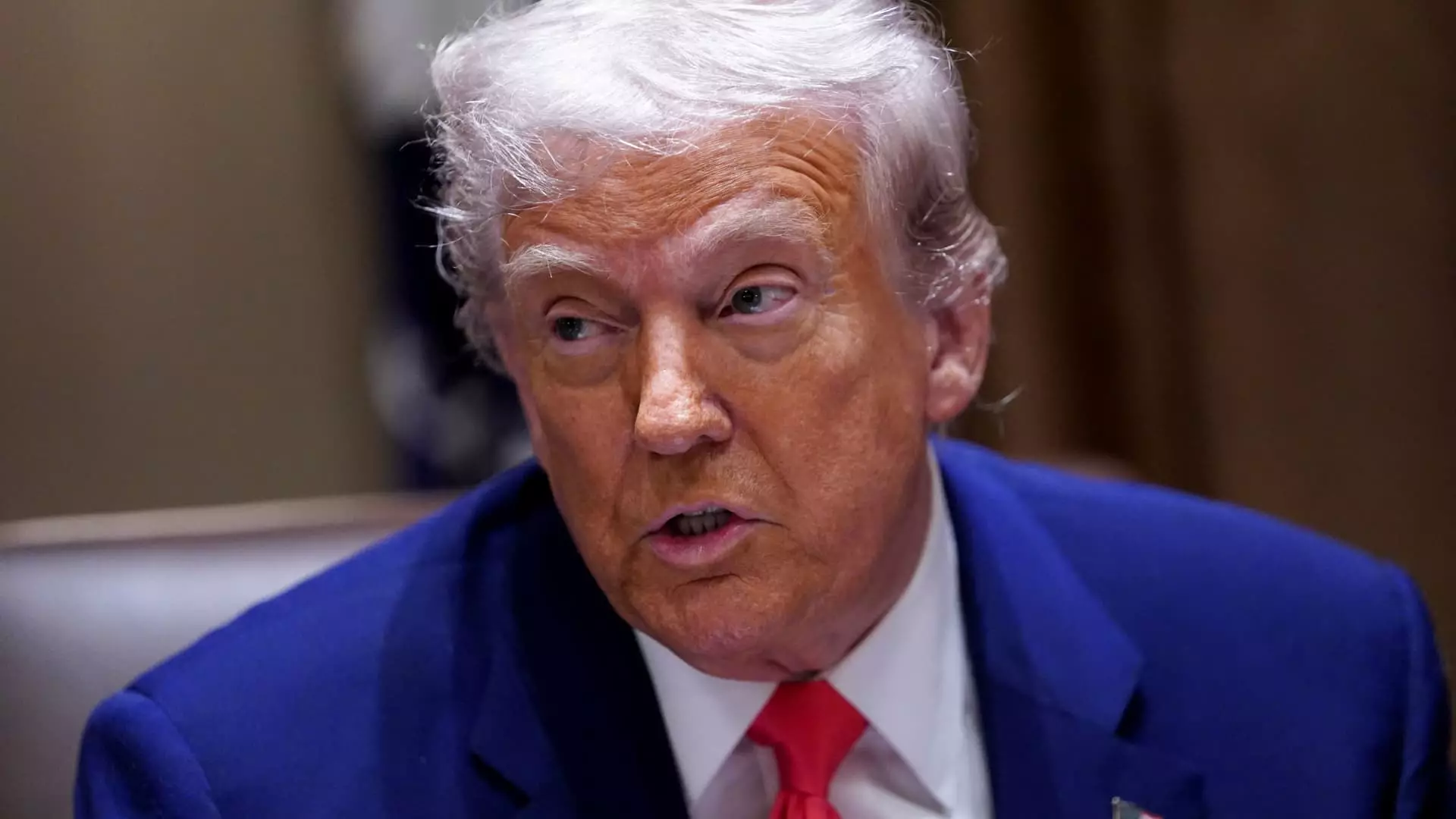The recent escalation of tariffs on Chinese imports, now reaching an astonishing 145%, signals a drastic turn in U.S.-China trade relations and raises significant concerns about the potentially catastrophic consequences for the American economy. Economist Erica York’s analysis indicates that tariffs approaching triple-digit figures could effectively sever the majority of trade between the two nations. While some companies might absorb certain costs due to lack of substitutes, the overwhelming consensus is that these levies mark a threshold beyond which trade will plummet. The implications are grave—an economy that has been nurturing its relationship with international trading partners now faces self-inflicted wounds due to protectionist policies.
The market’s jolting downward trajectory, losing substantial ground soon after the announcement, underscores the uncertainty that business leaders—facing heightened operational costs—are now grappling with. As the administration pushes for such aggressive tariffs, one must question the wisdom of these policies. Not only are they erasing the gains made previously, but they are also cultivating a landscape fraught with risk and instability, effectively holding American consumers hostage in a high-stakes game of economic poker.
The 90-Day Suspension: Insufficient Relief?
In a recent Cabinet meeting, President Trump alluded to extending a temporary suspension of tariffs on imports from most other countries, set at 10%, for a 90-day period. This raise questions about the sincerity of the administration’s commitment to fostering a cooperative trade environment. While relief from tariffs on other goods may seem beneficial at face value, the exclusion of China from this temporary reprieve suggests a rigid posture that may induce long-term economic harm.
York aptly notes that the average tariff rates are set to reach levels unseen since the 1940s, marking an unmistakable shift toward protectionism that could bear significant costs for American consumers and businesses alike. It’s a stark contradiction as the country navigates an era marked by globalization. Consumers can expect to see increased prices and diminished options, ultimately hurting middle-class families who will shoulder the burden of these misguided policies.
Tax Increases and Political Ramifications
The economic reverberations of these tariffs inevitably lead us to examine the political ramifications that accompany such sweeping changes. The Tax Foundation anticipates a monumental increase in federal tax revenues, estimated at a staggering $171.6 billion this year partly due to these tariffs. What strikes one as profoundly disconcerting is the potential misalignment of these policies with the needs of the American public.
This increase would be the largest tax rise since 1993, outstripping past increases under Presidents George H.W. Bush and Barack Obama. Thus, while the administration may portray this as a strategic maneuver to bolster American industry, critics must highlight that it represents a misguided approach, leveraging consumers and businesses as collateral damage in a trade conflict.
Moreover, one cannot ignore China’s resolute stance; their decision to elevate retaliatory tariffs to 84% illustrates their willingness to engage in an economic battle. Such actions could send ripples through the U.S. economy, further exacerbating inflation and creating uncertainty that deters foreign investment—factors that can undermine long-term economic growth.
A Call for Pragmatism
What we are witnessing is not just a clash of economic policies but a fundamental challenge to the core tenets of liberalism that prides itself on opening markets and facilitating free trade. The trajectory of current tariff policies leans into a brand of aggressive nationalism that, while appealing on the surface to a certain voter base, threatens to derail decades of progress in fostering international cooperation and mutual prosperity.
To pave a productive path forward, we must embrace dialogue and seek a balanced approach rather than digging in our heels. A nuanced trade policy that acknowledges the complexities of global interdependence could mitigate the risks associated with a fully-fledged trade war. If our leaders do not recalibrate their stance, we may find ourselves on the precipice of a self-inflicted economic crisis—one that may take years to untangle.

